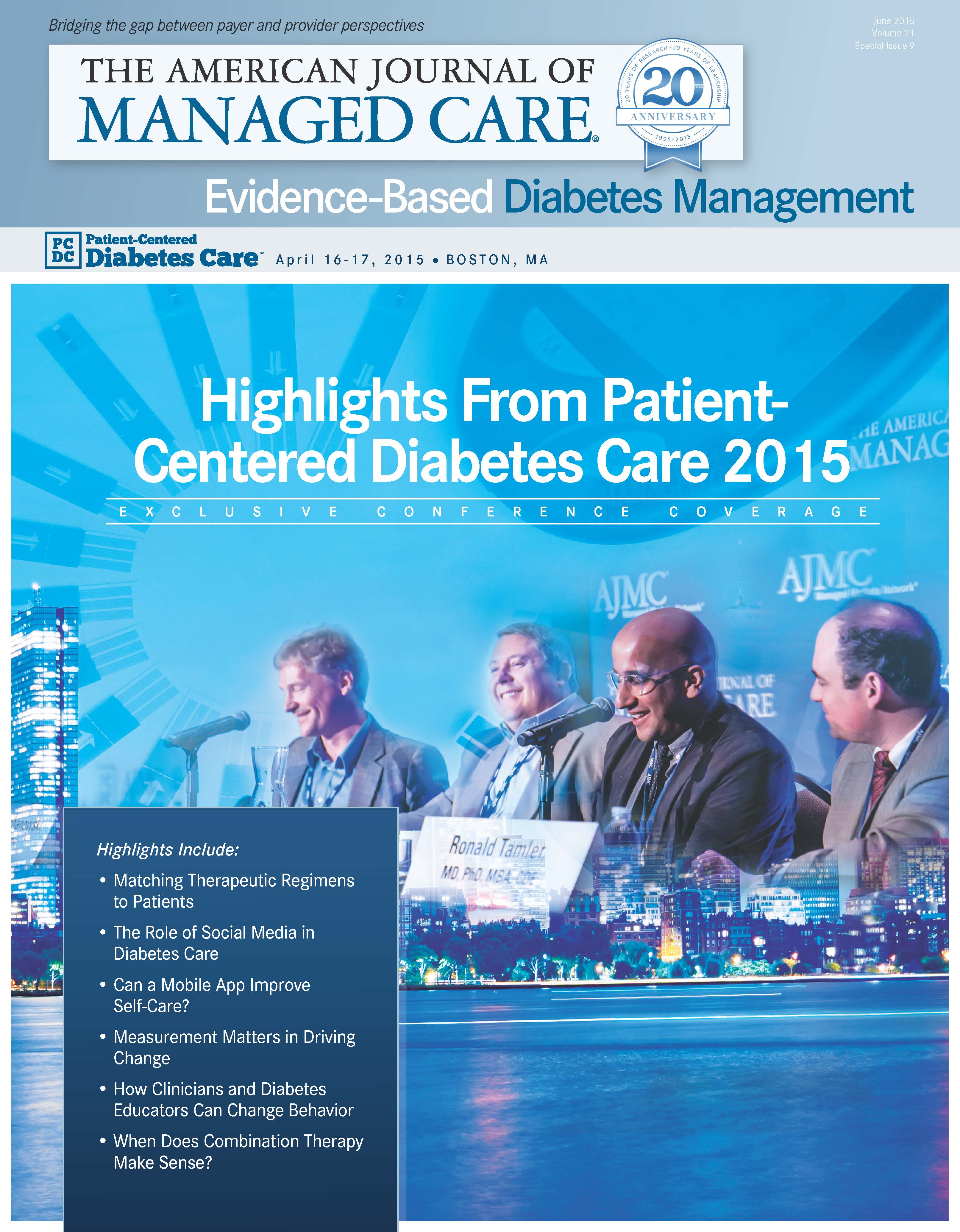- Center on Health Equity & Access
- Clinical
- Health Care Cost
- Health Care Delivery
- Insurance
- Policy
- Technology
- Value-Based Care
Stories, Not Statistics, Are What Get Through to Patients With Diabetes, O'Connor Says
What patients have heard from others with diabetes matters when they receive a diagnosis, according to the opening speaker at Patient-Centered Diabetes Care 2015.
The stories about diabetes people have heard from friends and family are far more persuasive than lectures from their doctor, said Patrick J. O’Connor, MD, MA, MPH, in his presentation, “The Patients' Toolbox for Better Decision Making.” O’Connor opened Patient-Centered Diabetes Care 2015 on April 16, 2015, in Boston, Massachusetts.
O’Connor, a senior clinical investigator at Health Partners Institute for Education and Research in Minneapolis, Minnesota, recommended that physicians ask patients if they know someone with diabetes when they tell them about their diagnosis. The huge majority of patients know someone with diabetes, and it is important for the physician to know what stories patients have heard about the disease and the efficacy of treatment.
“It’s good to elicit these stories, to really think about what they mean (to the patient) and to respond to the person, but perhaps not with numbers,” O’Connor told attendees at the third annual conference, which was jointly presented by The American Journal of Managed Care and Joslin Diabetes Center. Large clinical trials can “show a benefit with a very small actual benefit to a patient” that is not easily explained to the typical person with little background in statistics.
“There’s an important distinction that we need to make between evidence-based medicine and what’s good for (a specific patient),” O’Connor said. “Out of all those evidence-based things, what has the biggest benefit for (the patient)? That’s a very tough question.”
Presenting patients with the results of clinical trials that support the value of taking various medications seldom persuades them, because most patients do not understand statistics.
O’Connor showed slides of a common method for presenting the results of epidemiological studies to lay people. The method used a thousand dots of different colors. “You tell the patient, ‘Look, there are a thousand people like you.’” You need to treat all the patients with a moderate dose of a statin to get fewer heart attacks, he said. “You’re able to prevent more than 1 out of 3 heart attacks. That’s about as good as it gets in clinical medicine. But when patients look at this, a lot of them ask, ‘Why are we even talking about this medicine? You kidding me? All these people have to take it for that many people to have a benefit?’”
In Minnesota, O’Connor worked with a team funded by a grant from the National Institutes of Health to develop algorithms that analyze electronic medical records to prioritize treatments and communicate the benefits in formats tailored to the physician and patient. O’Connor demonstrated the system using the example of a 59-year-old male patient.
“It says for each of these 6 major dimensions of care lipids, blood pressure, glucose, aspirin use, smoking, and BMI how much can you reduce the cardiovascular risk by taking an action in any of those areas that’s not at goal? The number 1 thing for this person is smoking,” O’Connor pointed out.
Even when statistics are presented in an understandable way, many pa-tients are not psychologically ready to grasp their significance. As an example, O’Connor cited a patient of his who was obese, sedentary, and had low high-density lipoprotein and high triglycerides. “I told him for several years he was headed for diabetes. Nothing really made much of an impression on him,” O’Connor said. “He finally got diabetes. I told him, ‘You’ve got diabetes. This is what it means.’”
The patient began taking metformin and attended sessions with a diabetes educator and saw O’Connor several weeks later.
“I said, ‘How’s it going with your diabetes?’ He looked at me and said, ‘What diabetes?’ The guy sort of knew he had diabetes, but on another level he didn’t.”
Behavioral scientists have demonstrated, and O’Connor’s experience has confirmed, that it’s very hard to get people to deal with their disease until they are ready to change. Their readiness “doesn’t change much in response to what healthcare professionals say. It changes a lot in relationship to the stories of a person’s life.”
When his patients won’t listen to facts, “We’ve trained our diabetes nurs-es to say we’ll talk about it again at the next visit.”


